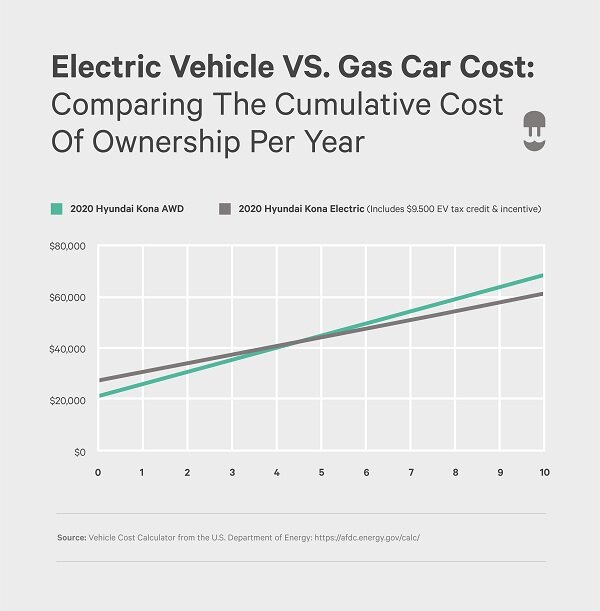Electric cars are more popular these days than the Britney Spears in 2007, but is electric car the future of transportantion?
There’s a lot to think here. Amongst second thoughts about safety and pricing, it seems that they will domain the market — with a full support of the White House.
How safe are electric cars? Video below show explosions and crashs that concern drivers
Only 4% of the sold cars in 2021 were electric vehicles. The Americans are offering some resistance to the idea, and part of it comes from safety.
We can’t blame them since the web is full of videos like this shocking compiled that shows Tesla vehicles simply exploding because of the battery:
Unfortunately, this is not the only concern that drivers have with electric cars. We all know that a regular car, which is totally under your control, is dangerous enough.
But what happens when you do not control the car?
Robots don’t have legally obligations or ethic conflicts when it comes to risky situations. More than that, systems simply not work sometimes, as in this shocking situations that happened in China when a electric car looses control.
Electric cars safety
Well, dispite of the reputation these cars are getting, studies show that this tech vehicles are actually safer than the combustion cars in terms of a possible fire.
As the “regular” cars use fossil-fueled combustion, they have actually 1.5% danger of catching fire. When we speak of electric cars, the statistics go for 0.03% chances. (source: Drive electric association)
That is because the EV use lithium-ion batteries that are spotted into small cells and protected by firewalls, that at the end of the day make them safer.
The batteries are also planned to keep the passengers safe in case of crash: they are dropped within milliseconds of a possible collision.
Electric car crash safety
According to the insurer company Axa, the electric cars are involded in 50% more traffic accidents than petrol and diesel models. But, this apparently is not the car fault.
The acceleration of electric cars normally amuse new drivers, and their behavior with these extremely fast cars is what make them dangerous.
As an example, drivers of powerful electric cars cause twice as many accidents as with standard cars. Anyway, in case of a car crash, the electric one has less harming chances: first, because it’s systems just stops at the small signal of colliding; second, because of their weight.
Carrying a lot of batteries make the car a lot heavier than the classic models, so, while they represent a small percentage of the vehicles, this happens to be an advantage.
But, well, is electric car the future?
Even though today the US drivers are slow in the electric vehicle adoption, especially Joe Biden built his economic plan taking electric vehicles (EVs) in high importance, as they mean a boost of new good-paying jobs across the country.
In this White House statement, Presidente Biden sets a bold goal: 50% of all vehicles sold in the US by 2030 must be electric (part of the President “Made in America” policies).
This perspective is a good economic opportunity, but also very useful to fight climate change, among other benefits.
Benefits of electric cars
Let’s see if buying a electric car is a smart decision:
- Environment
- Saving money
- Maintenance
- Noise
Here some more details about electric cars pros.
Environment — Climate change
You’re probably tired of this information, but if you’re here in Hourglass I tend to believe that you care about climate change.
Differently of what some people try to say, electric cars are the closest to zero carbon emissions that we have these days.
The rumors about the battery have a bigger carbon footprint are just especulations or missunderstading of a basic information: producing electric cars do take more carbon.
According to Florian Knobloch, from the Cambridge Studies on Environment, Energy and Natural Resources Governance, producing electric vehicles leads to extra CO2 emissions, something around 30% to 40% extra in the production process.
However, this is also considered as an investment, which pays off quiclick to the reduced life time emissions.
Saving money
Well, you must be confused. If you’re thinking of electric cars you can buy, you probably already discovered that currently an electric vehicle costs $10.000 more to acquire in average.
But this is not the right math, right?
Is electric car cheaper than gasoline-powered car?
The true is that driving an electric car is cheaper than the gasoline-powered tradicional models. Have you ever imagined a future of not worrying about the fuel price?
According to a study from the VerifyThis website, it costs 17 cents to drive one mile with a tradicional car model, but when it comes to EVS, this cost drops to 5 cents per mile. Numbers never lie.
The best part is that efficiency is not even the only amount to consider. We all know that the power bills are much cheaper than gasoline gallons.
We’re talking about an end to end economy.
So even if you pay $10.000 more to have your electric car, the right math is: when will this investment pay off? According to car market experts, this takes lonly 1.8 years in average (depending on your car usage).
Electric cars have a lower maintenance costs, because of this efficency, so you need to think about the costs you have per year to fix problems of your vehicle that show up here and there.
Electric car vs gas: overtime costs comparison
In this chart, you check a comparison for 2 Hyundai models: one electric car and one gas-powered car. It’s visible that, as time goes by, the costing difference between these models are growing more and more.

Electric cars noise
We all know that one of the biggest problems in big cities is quality of life. Noise pollution is one of the main factors that affect people’s lives, causing stress, sleep problems, and irritability.
Electric cars also have an advantage in this respect: they are much quieter than gasoline-powered cars.
This is because they do not rely on as many mechanical valves, fans, or gears that make traditional vehicles so noisy.
Cons of electric cars
Nobody is perfect, and electric cars aren’t either.
Here are some electric vehicles disvantages to take in consideration:
- Limited range
- High acquistion cost
- Charging structure
Limited range — How much do you drive?
At this moment, the majority of electric cars can run about 100–200 miles per charge.
This is not the ideal scenario for people who need to make long distance trips. This is also an environmental problem and affects climate change.
People who drive the most are specifically those who need to change their power source for cars, cause their emissions are much higher than an average driver.
This limitation can keep people who drive a lot away from this new technology, such as truck drivers or Ubers, that spend the whole day driving. Check electric cars range list.
Acquisition cost
As we saw above, even if the electric vehicles are much cheaper in the long-term, it is still necessary to make a huge investment to buy one.
Most of the american people are not willing to pay so much for something that they don’t believe (or do not care).
It becomes urgent to find out new ways of cutting costs for production, distribution and selling of these new car models so that it becomes affordable for the average customer.
Charging infrastructure
Imagine yourself in a driveway to visit your family and, suddenly, your car runs out of power. This is not only concerning, but dangerous.
There’s over 70.000 gas stations with convenience stores in the US in 2022. As this is a very established industry, the gasoline car drivers can find a place to fuel very easily. The same doesn’t happen yet with the electric cars.
There’s only 53.000 charging stations in the US at this moment. You may think that mathematically this is not a huge difference, but for someone whos trying to get home and don’t have enough battery to do so, this a huge problem.
Is electric car the future?
As you can see, you have pros and cons. The electric cars are extremely different from the gasoline-powered ones, but, yes, we can risk to say that electric cars are indeed the future of transportantion.
With their efficiency, the lower maintenance cost, the climate change urgency and governmental incentives, we can say that the goal of get to 2030 with the electric vehicles domain is a very likely scenario.
The only thing that needs to be improved is the charging infrastructure across the country and to lower the buying costs, which is something that tends to happen considering that the competition is growing and all players are seeking more efficient ways to produce and distribute these vehicles.


